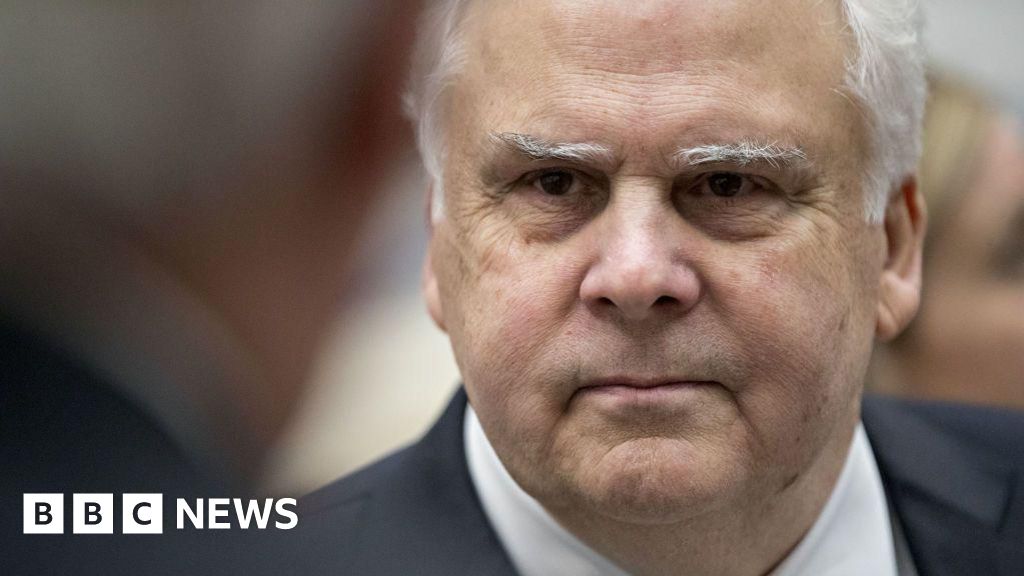How to Define Goal Setting Theory to Achieve Objectives

Goal-Setting Theory, developed by Edwin A. Locke, outlines a structured approach to achieving objectives through the formulation of specific and challenging goals. By applying the SMART criteria, you can improve clarity and motivation in your pursuits. Comprehending the key principles, such as the importance of feedback and managing task complexity, is crucial. As you explore these concepts, consider how they can transform your goal-setting process and drive better outcomes in your personal and professional life.
Key Takeaways

- Goal Setting Theory emphasizes specific and challenging goals to enhance performance and motivation in achieving objectives.
- The SMART framework (Specific, Measurable, Attainable, Relevant, Time-bound) guides effective goal formulation for better outcomes.
- Clarity in goal definition reduces misunderstandings and increases focus, leading to improved performance.
- Regular feedback is essential for tracking progress, adjusting strategies, and maintaining motivation throughout the goal-setting process.
- Balancing challenge with capabilities is crucial to sustain engagement without causing stress or disengagement from objectives.
Understanding Goal-Setting Theory

Goal-setting theory is a potent framework that can greatly improve your performance and motivation. Developed by Edwin A. Locke in 1968, it emphasizes that specific and challenging goals lead to better task performance than vague or easy ones.
The Locke and Latham goal setting theory revolves around five key principles: clarity, challenge, commitment, feedback, and task complexity. By applying these principles, you can boost your motivation and overall performance.
The SMART framework—Specific, Measurable, Attainable, Relevant, and Time-bound—provides a structured approach to formulating effective goals. Research shows that well-defined goals considerably increase employee engagement and productivity, ultimately offering you clear direction and a sense of purpose.
Embracing this theory can lead to substantial improvements in your personal and professional life.
The Purpose of Goal-Setting Theory

Effective goal-setting serves as a crucial tool for improving motivation and performance in both individuals and teams. The primary purpose of goal-setting theory is to understand how the goal-setting process connects with work motivation.
By applying the Locke and Latham goal setting principles, you can define goal-setting theory as a structured approach that improves clarity and focus. This results in enhanced performance through effective goal management.
Setting specific, challenging goals rather than vague or easy objectives inspires greater motivation and success. Furthermore, incorporating feedback and supporting self-efficacy helps maintain accountability toward your goals.
In the end, implementing this theory can lead to higher employee engagement, job satisfaction, and increased productivity, making it a valuable framework for achieving your objectives.
Key Principles of Goal-Setting Theory

Comprehending the key principles of goal-setting theory can greatly improve your approach to achieving objectives.
First, clarity is fundamental; specific goals reduce misunderstandings and sharpen your focus.
Next, challenge plays a significant role; setting difficult but attainable goals keeps you engaged and motivated, leading to better performance.
Commitment is equally important; when you’re personally invested in your goals, you’re more likely to achieve them.
Furthermore, feedback is critical; regular progress updates help you adjust your efforts and sustain motivation.
Finally, consider task complexity; break down complex goals into smaller, manageable tasks to make progress easier and reduce feelings of overwhelm.
Importance of Clarity in Goals

When you set clear goals, you improve your focus and make it easier to achieve what you want.
Specific goals, like aiming to “increase sales by 15% in Q2,” help reduce misunderstandings among team members, leading to better communication.
Clear Goals Enhance Focus
Clarity in goal setting plays a crucial role in enhancing focus and driving success. According to Locke’s theory of goal setting, clear and specific goals greatly increase your chances of achievement.
When you set a precise target, like “increase sales by 20% in Q2,” you provide yourself with a quantifiable objective. This clarity not only directs your efforts but likewise boosts your motivation to reach well-defined outcomes.
Research shows that ambiguous goals typically lead to lower performance. By establishing clear goals, you can track your progress effectively and make timely adjustments if necessary.
This approach keeps you engaged and accountable throughout the process, making clarity a fundamental component of effective goal setting.
Specificity Reduces Miscommunication
Setting specific goals is essential for reducing miscommunication within teams. When you define detailed expectations, you improve clarity, which minimizes misunderstandings among team members.
Research indicates that clearly defined goals markedly increase the chances of achieving desired outcomes compared to vague objectives. By articulating goals with precision, you provide improved focus and direction for both individuals and teams. This alignment guarantees that everyone understands their roles in reaching broader objectives.
Additionally, clear and precise goals help reduce anxiety and confusion, leading to higher engagement and productivity in the workplace. To cultivate a more effective team environment, invest time in setting specific, measurable, and attainable goals that everyone can grasp and work in the direction of collectively.
The Impact of Challenging Goals

Challenging goals can greatly boost your motivation, pushing you to stretch your abilities and commit more effort to reach them.
Nevertheless, it’s crucial to find the right balance between the difficulty of your goals and your current capabilities, as overly ambitious targets can lead to frustration.
Motivation Through Challenge
When you pursue goals that push your limits, you not merely improve your motivation but furthermore reveal your potential. Challenging goals can greatly improve your engagement and performance. Research shows that specific high goals lead to better outcomes compared to vague or easy ones. When you believe in your ability to achieve these goals, you’re more likely to put in the effort and persist. Here’s a simple table illustrating key aspects of challenging goals:
| Aspect | Impact |
|---|---|
| Motivation | Increased effort and persistence |
| Engagement | Stronger sense of purpose |
| Performance | Higher achievement levels |
| Skill Development | Growth of new abilities |
Balancing Difficulty and Capability
Balancing the difficulty of your goals with your personal capabilities is vital for maintaining motivation and achieving success. Setting challenging goals can motivate you to stretch your abilities, leading to higher performance outcomes.
Nevertheless, if your goals are too ambitious, you may experience frustration and decreased motivation. It’s imperative to choose moderately challenging goals that are difficult yet achievable, as this promotes commitment without causing burnout.
Regularly assess your progress in relation to these goals and adjust them as necessary, ensuring they remain aligned with your capabilities. Research shows that believing in your ability to achieve these goals greatly improves your chances of success.
Encouraging Skill Development
Setting ambitious goals can greatly impact your skill development, as they encourage you to push beyond your current capabilities. When you set challenging yet attainable goals, you’re more likely to feel motivated and put in greater effort, leading to improved performance in various areas, like academics and sports.
Research by Locke and Latham indicates that believing in your ability to reach these goals promotes proactive behaviors crucial for skill acquisition. Furthermore, these goals can spark creative problem-solving, pushing you to develop new strategies to meet your targets.
They likewise improve persistence and resilience, as you’re inclined to overcome obstacles when driven by a significant objective. Embracing challenging goals can eventually nurture your growth and improve overall performance.
Commitment and Its Role in Goal Achievement

Commitment plays a crucial role in achieving your goals, as individuals who are deeply invested tend to exhibit greater motivation and persistence.
When you commit to specific goals, your performance can improve by up to 25% compared to those with less commitment. It’s imperative that your enthusiasm for these goals comes from personal values and interests, not just external pressures.
To improve your commitment, set goals that resonate with you personally. Regularly revisiting and affirming your commitment can additionally strengthen your motivation, making it easier to overcome challenges.
The Necessity of Feedback

Though you might set ambitious goals, without regular feedback, it can be challenging to gauge your progress and make necessary adjustments.
Feedback is crucial in goal-setting theory; it helps you track your progress, identify areas for improvement, and maintain motivation. Regular feedback sessions improve your commitment to goals by reinforcing positive behaviors and providing constructive guidance, enhancing performance outcomes.
Establishing checkpoints for feedback allows you to make timely adjustments to your goals or strategies, ensuring alignment with desired outcomes as well as reducing frustration from unrealistic expectations.
Research shows that consistent feedback increases your motivation and engagement. Effective feedback should be specific and timely, helping you understand your performance relative to your goals, ultimately promoting a culture of continuous improvement.
Task Complexity and Goal Management

When faced with complex tasks, breaking them down into smaller, manageable components is essential for effective goal management. By doing this, you can improve your focus and make the path to achievement clearer.
Here are some key strategies to reflect on:
- Define specific, clear objectives to reduce confusion and increase motivation.
- Regularly assess your progress to make necessary adjustments and stay engaged.
- Adjust your goals based on task complexity to keep them realistic and achievable.
- Use structured steps to avoid feeling overwhelmed and maintain momentum.
Benefits of Implementing Goal-Setting Theory

Implementing goal-setting theory offers numerous advantages that can greatly improve individual and organizational performance. By setting specific and challenging goals, you can increase employee engagement and job satisfaction, leading to 10-25% higher performance compared to vague goals.
This structured approach boosts clarity and focus, allowing you and your team to align efforts in the direction of defined objectives. Regular feedback, a key component of goal-setting theory, supports continuous improvement and accountability, resulting in a more motivated workforce.
Cultivating a culture of feedback and self-efficacy helps achieve better adherence to deadlines and performance metrics. Utilizing the SMART goals framework guarantees your objectives are Specific, Measurable, Attainable, Relevant, and Time-bound, greatly increasing the likelihood of successful outcomes for everyone involved.
Limitations to Consider in Goal-Setting Theory

When setting goals, it’s vital to recognize potential limitations that can arise.
Unrealistic goals can lead to stress and disengagement, making it hard for you to stay motivated.
Furthermore, focusing too strongly on specific achievements may cause you to overlook the intrinsic enjoyment of your tasks, which is fundamental for long-term satisfaction and productivity.
Unrealistic Goal Challenges
Setting unrealistic goals can create significant challenges that undermine your motivation and overall well-being. When you set goals that are too ambitious, it often leads to increased stress and anxiety. You might feel overwhelmed by the pressure to achieve outcomes that are simply unattainable.
This can result in frustration and decreased motivation, especially when you fail to meet those expectations. Furthermore, complex goals that aren’t broken down can lead to risky shortcuts, which compromise your performance. A narrow focus on these challenging goals may likewise cause you to neglect other important responsibilities.
To avoid these pitfalls, consider the following:
- Break down complex goals into manageable tasks.
- Align goals with your capabilities.
- Maintain balance in your work.
- Avoid excessive pressure on yourself.
Neglecting Intrinsic Motivation
Neglecting intrinsic motivation can greatly hinder your overall performance and satisfaction in achieving goals. As goal-setting theory emphasizes extrinsic motivators, this focus can overshadow the personal joy you derive from tasks. When you prioritize specific goals, you may lose sight of the learning process, leading to stress and anxiety. Unrealistic goals can also encourage frustration, diminishing your drive for improvement. Here’s a quick overview of the key points to reflect on:
| Limitation | Impact on Motivation | Potential Solution |
|---|---|---|
| Emphasis on extrinsic rewards | Diminished enjoyment | Balance goals with personal interests |
| Specific, rigid goals | Increased stress | Set flexible, achievable goals |
| Unrealistic expectations | Feelings of failure | Focus on incremental progress |
| Neglect of personal growth | Decreased engagement | Include personal development goals |
| Narrow goal focus | Reduced fulfillment | Embrace a broader perspective |
Conclusion

In summary, utilizing Goal-Setting Theory effectively can greatly improve your ability to achieve objectives. By setting specific, measurable, and challenging goals, you’ll enhance focus and motivation. Regular feedback is crucial for tracking progress, whereas managing task complexity helps maintain engagement. Remember to apply the SMART criteria to guarantee your goals are realistic and relevant. By implementing these principles, you can drive your performance and reach your desired outcomes more efficiently.
Image Via Envato
This article, "How to Define Goal Setting Theory to Achieve Objectives" was first published on Small Business Trends
What's Your Reaction?
 Like
0
Like
0
 Dislike
0
Dislike
0
 Love
0
Love
0
 Funny
0
Funny
0
 Angry
0
Angry
0
 Sad
0
Sad
0
 Wow
0
Wow
0

























































































